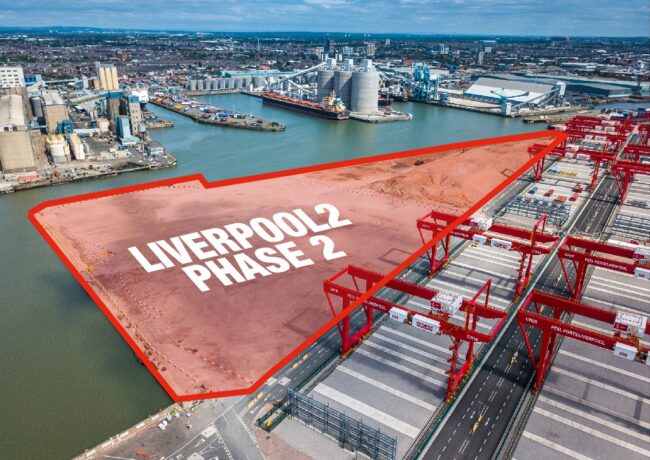Peel Ports ‘forging ahead’ with Liverpool 2 expansion as remedial works complete
Peel Ports has confirmed that a sinkhole at the Liverpool 2 container port has been fully repaired, while chief executive Mark Whitworth said outline designs for the port’s second phase were now being prepared.
Place North West reported last Friday that contractor Bam Nuttall had completed works at the sinkhole, which was first discovered in February this year, three months after the £400m port opened. Main contractor Bam Nuttall, in a joint venture with Van Oord, was drafted back in to investigate the causes of the 10m sinkhole.
Work was undertaken to inject grout into a weakness in the quay wall which caused the initial sinkhole, and Peel Ports said extensive surveys and investigations were undertaken to make sure the remainder of the terminal was unaffected.
Today, Peel Ports added that Bam Nuttall would remain on site until December for “a number of other minor works, in addition to routine maintenance” as part of its “ongoing responsibilities”.
The company added that the terminal received calls from 18 vessels during the period when sinkhole repairs were ongoing.
The Bam Nutall-Van Oord joint venture first completed construction of the terminal in 2016 after lengthy delays blamed on bad weather and engineering issues. The JV replaced original contractor Lendlease on the project in 2013.
Peel Ports also confirmed it was pushing ahead with the second phase of the development, which includes three additional ship-to-shore cranes, and 10 cantilever rail mounted gantry cranes. The expansion includes additional reefer points to allow the port to handle greater quantities of refrigerated materials.
Tender documents were recently issued for the expansion, expected to complete in 2019.
Mark Whitworth, chief executive of Peel Ports, said the company was “forging ahead with preparing outline designs for the second phase”.
“The expansion of Liverpool2 reflects our confidence in the long-term potential of the Port of Liverpool to help transform the UK logistics sector by helping cargo owners ship closer to and from their markets,” he added.
“We remain in advanced discussions with a number of shipping lines about introducing direct deep-sea calls to the port. We also continue to attract supporters for our Cargo200 initiative, showing that importers and exporters understand that shipping via Liverpool offers savings in costs, congestion and carbon emissions.”




